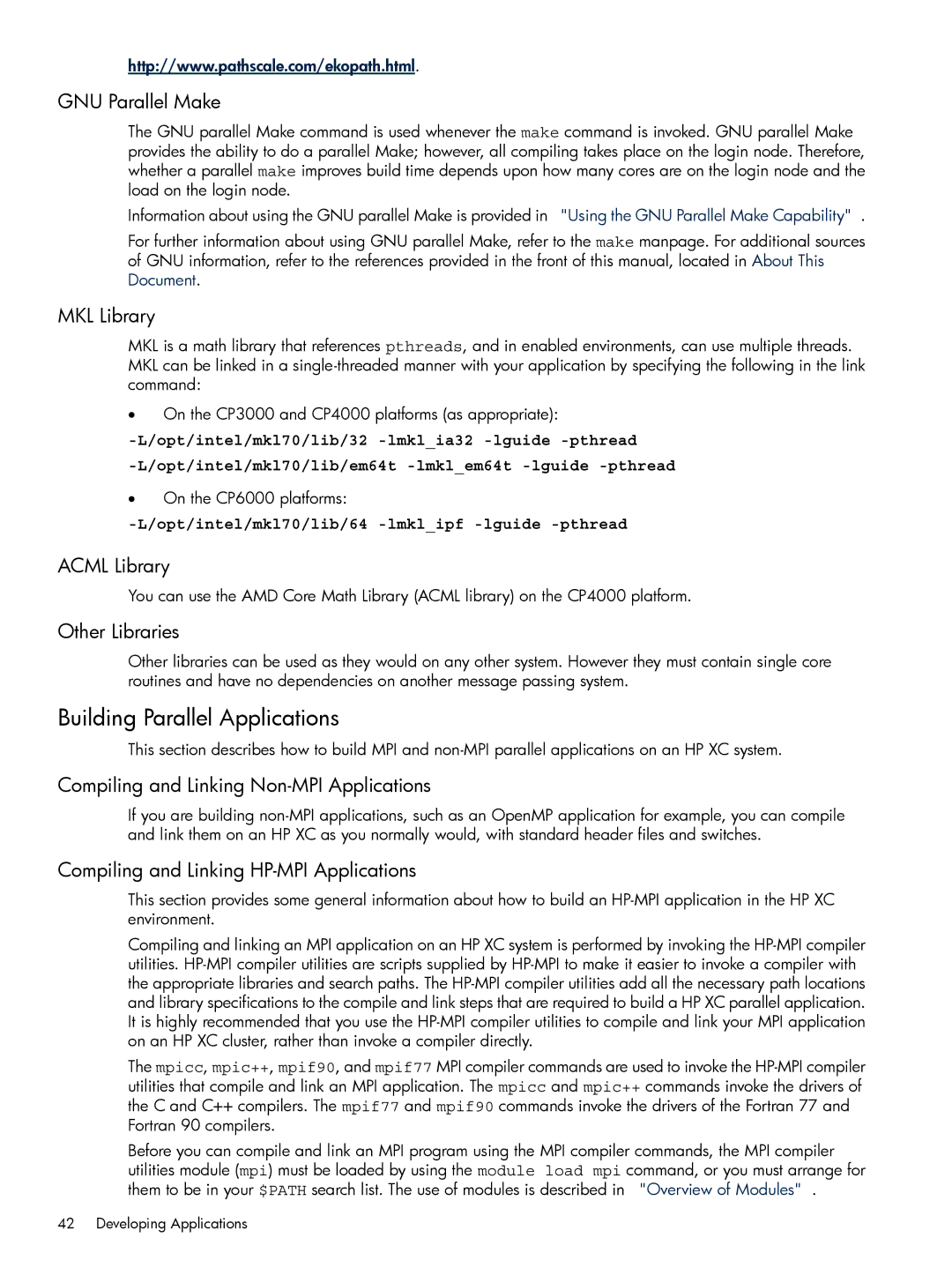http://www.pathscale.com/ekopath.html.
GNU Parallel Make
The GNU parallel Make command is used whenever the make command is invoked. GNU parallel Make provides the ability to do a parallel Make; however, all compiling takes place on the login node. Therefore, whether a parallel make improves build time depends upon how many cores are on the login node and the load on the login node.
Information about using the GNU parallel Make is provided in "Using the GNU Parallel Make Capability" .
For further information about using GNU parallel Make, refer to the make manpage. For additional sources of GNU information, refer to the references provided in the front of this manual, located in About This Document.
MKL Library
MKL is a math library that references pthreads, and in enabled environments, can use multiple threads. MKL can be linked in a
•On the CP3000 and CP4000 platforms (as appropriate):
•On the CP6000 platforms:
ACML Library
You can use the AMD Core Math Library (ACML library) on the CP4000 platform.
Other Libraries
Other libraries can be used as they would on any other system. However they must contain single core routines and have no dependencies on another message passing system.
Building Parallel Applications
This section describes how to build MPI and
Compiling and Linking Non-MPI Applications
If you are building
Compiling and Linking HP-MPI Applications
This section provides some general information about how to build an
Compiling and linking an MPI application on an HP XC system is performed by invoking the
The mpicc, mpic++, mpif90, and mpif77 MPI compiler commands are used to invoke the
Before you can compile and link an MPI program using the MPI compiler commands, the MPI compiler utilities module (mpi) must be loaded by using the module load mpi command, or you must arrange for them to be in your $PATH search list. The use of modules is described in "Overview of Modules" .
42 Developing Applications
